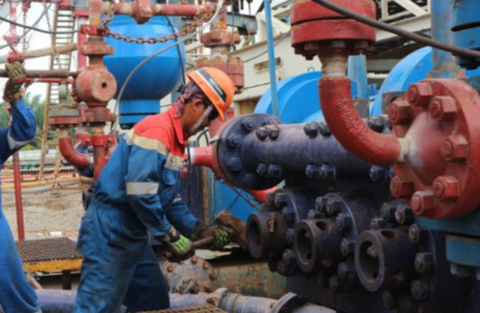Essential Practices for Efficient Well Operation

Efficient well operation is the backbone of a successful water, oil, or gas extraction operation. Whether you are managing a single well or a network of wells, proper practices not only ensure productivity but also extend the life of your equipment, enhance safety, and minimize environmental impact. For well operators, mastering the essentials is crucial to maintaining both efficiency and reliability in daily operations.
1. Regular Inspection and Maintenance
For well operators in Texas, one of the key practices for maintaining efficient operations is consistent inspection and maintenance, especially of critical components like pumps, valves, and the bottom hole assembly (BHA). These components are constantly exposed to stress and wear, making routine checks essential to catch issues such as leaks, corrosion, or pressure irregularities before they develop into major problems. Implementing a preventive maintenance plan—including lubrication, timely replacement of worn parts, and calibration of sensors—can significantly reduce downtime and costly repairs, ensuring that both surface equipment and the BHA continue to operate smoothly.
2. Monitoring Well Performance
Keeping a close eye on well performance metrics is essential. Parameters like flow rate, pressure, and temperature provide insight into the well’s health. Advanced monitoring systems and data logging tools allow operators to detect trends and anomalies quickly. For instance, a sudden drop in pressure may indicate a blockage, while a consistent decline in flow rate could signal the need for well stimulation. By monitoring performance, operators can make informed decisions and maintain optimal productivity.
3. Ensuring Proper Fluid Management
Efficient well operation requires proper fluid management. This involves monitoring the type and volume of fluids injected or extracted, maintaining correct fluid levels, and ensuring proper separation of oil, water, and gas when applicable. For water wells, maintaining clean and balanced water levels prevents contamination and preserves well longevity. In oil and gas operations, fluid management reduces the risk of scaling, corrosion, and equipment damage. Accurate fluid tracking also supports regulatory compliance and environmental stewardship.
4. Implementing Safety Protocols
Safety is non-negotiable in well operations. Operators must adhere to strict safety protocols to prevent accidents and protect personnel. This includes proper use of personal protective equipment (PPE), following lockout/tagout procedures, and ensuring that emergency shut-off systems are operational. Regular safety drills and training ensure that all personnel are prepared for potential hazards, from high-pressure releases to equipment malfunctions. A safe work environment not only protects workers but also minimizes disruptions to operations.
5. Maintaining Accurate Records
Keeping detailed records is an often-overlooked yet critical aspect of efficient well operation. Documentation should include inspection reports, maintenance schedules, production data, and any incidents or anomalies. Accurate records provide a clear picture of a well’s history and performance, which is invaluable for troubleshooting, regulatory compliance, and long-term planning. Digital record-keeping solutions can streamline this process, making it easier to analyze trends and generate reports.
6. Adopting Technology and Automation
Modern technology and automation can significantly enhance efficiency in well operations. Remote monitoring systems, automated control valves, and predictive maintenance software allow operators to respond quickly to changes and reduce manual labor. Advanced analytics can forecast equipment wear or predict production trends, helping operators optimize operations. While initial investment may be high, the long-term benefits of technology adoption—reduced downtime, increased productivity, and improved safety—are well worth it.
7. Environmental Stewardship
Responsible well operation goes hand in hand with environmental stewardship. Operators must ensure that waste materials, fluids, and emissions are managed properly to prevent contamination. Implementing sustainable practices, such as recycling produced water or using eco-friendly lubricants, helps minimize environmental impact. Adhering to environmental regulations not only protects natural resources but also strengthens the operator’s reputation and ensures operational continuity.
Read Also: Mice Removal Techniques for Effective and Safe Pest Control
In Conclusion
Efficient well operation requires a combination of technical skill, diligence, and proactive management. By prioritizing regular maintenance, monitoring performance, managing fluids carefully, following safety protocols, maintaining accurate records, leveraging technology, and practicing environmental stewardship, well operators can optimize productivity while ensuring safety and sustainability. These essential practices create a foundation for long-term success, allowing operators to run wells smoothly, reduce operational costs, and achieve reliable output. Whether you’re a seasoned operator or new to the field, incorporating these strategies into your daily routine will help you maintain efficiency and ensure the longevity of your well operations.





